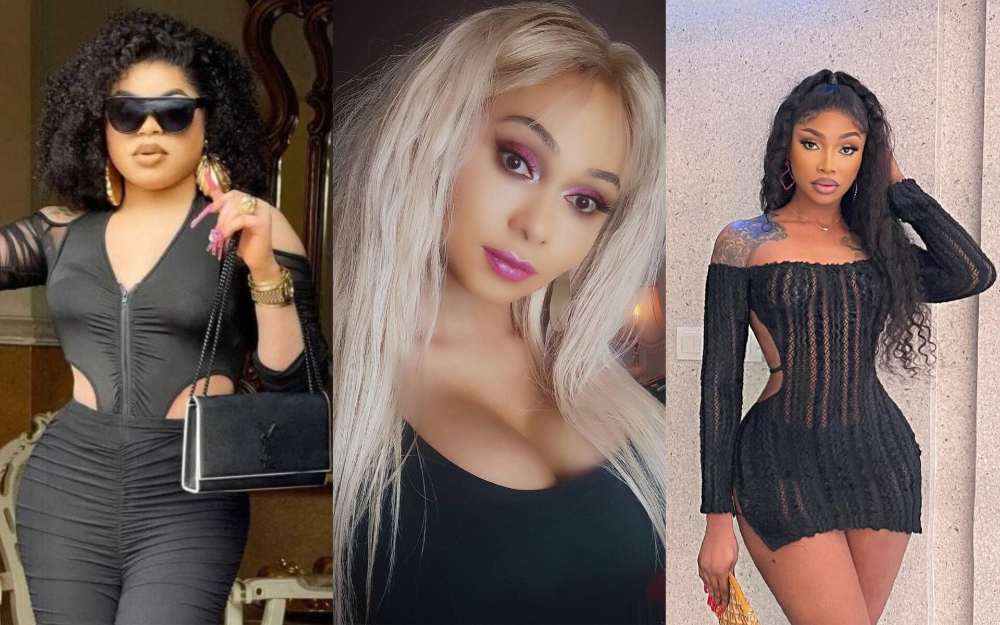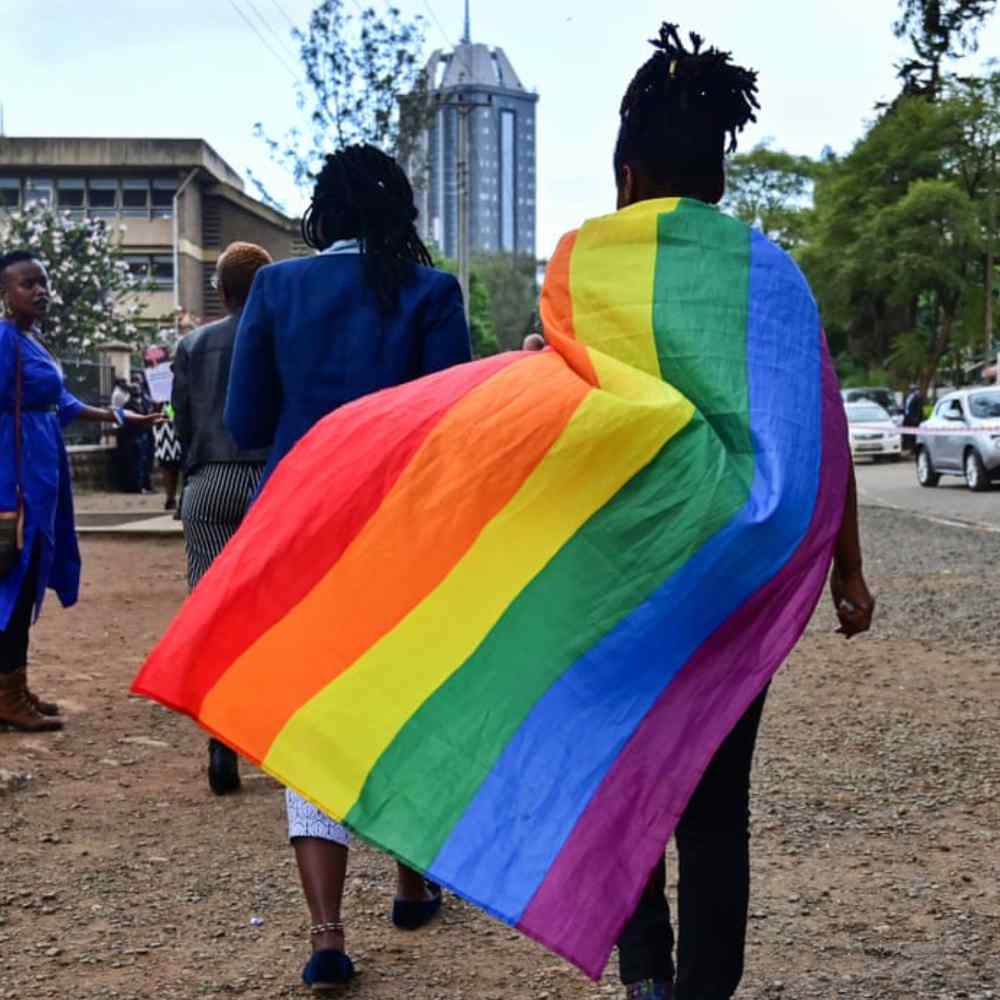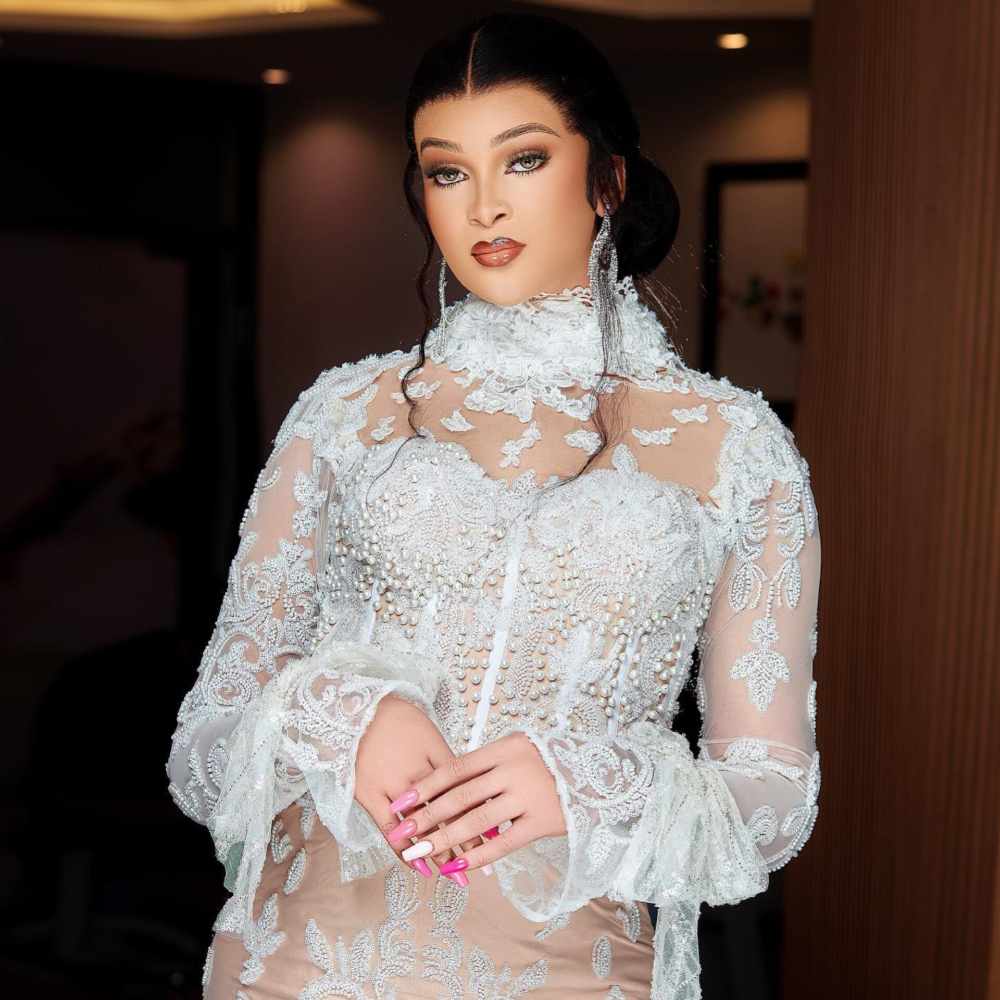
“When he saw me in the morning, he shouted, ‘Jesus! So this babe I use highness carry last night get gbola [This girl I hooked up with when I was drunk has a penis].’ He put on his clothes, locked me in his room, and left. I didn’t know what was next…”
****
A transgender person is someone whose gender identity differs from the sex they were assigned at birth. Gender identity describes an individual’s inner understanding of their own gender, whether that is male, female, a blend of both, or neither. A transgender woman is a woman who was assigned male at birth but identifies and lives as a woman. While some trans women may undergo hormone replacement therapy or gender-affirming surgeries as part of their transition process, not all do.
The Nigerian anti-gay law which criminalizes same-sex marriages and civil unions and public displays of same-sex affection is surprisingly silent about transgender people. While Nigerian law does not explicitly criminalize living or identifying as trans (at least not yet), transgender individuals often face the same or similar stigma, discrimination, public condemnation and violence as gay people.
Thanks to media evolution, some Nigerian trans women such as Bobrisky, Miss Sahhara, Jay Boogie, and others have found fame on social media by showcasing glamour, but behind the glitz and glitter, a sad truth lurks…

Boma’s experience
DNB Stories Africa interviewed a transgender woman, Pretty Boma (@prettybomaa on Instagram), who shared her unique experiences living as a transgender person in Nigeria.
Pretty Boma, born Boma Kalio, is a 24-year-old trans woman from Okrika, Rivers State. Boma is the typical brave Gen-Zer, even though she claims she hasn’t always been this bold. Pretty permitted us to share her story with her real name.
She said:
“Publish my story with my full details; I really don’t care about any backlash. If you want my picture, I’ll send you one with my best glam.”
According to Boma, she started cross-dressing when she was 8 years old (an age when she wasn’t even familiar with the term). She would dress up in her mother’s wrappers and check the mirror to see how perfectly it fits. However, just like a typical Nigerian home, her family rebuked her whenever they saw her that way.
Boma shared with us the moment she first understood what it means to be transgender:
“After watching the Spanish film ‘All About My Mother,’ I understood the meaning of being transgender. I never liked to be seen as an effeminate guy, and cross-dressing didn’t really align with my true identity. I have always felt like a girl and acted like one since I was a child. For me, my gender identity at birth was wrong.”
Unfortunately, there was no way she could tell her transphobic parents who gave birth to a male child that she wanted to identify as a girl. However, Pretty Boma had other plans.
She went on:
“My parents couldn’t stand the idea of me wearing anything feminine, let alone accepting me as a girl. I remember my father sending me to carry blocks at a construction site when I was 13 because he wanted me to conform to traditional masculine norms. So I had to wait until I got into the university before I started my transition journey. In fact, the only reason I enrolled in the University of Lagos was to escape my parents’ toxic rejection and move far away from home, never to return.”
Boma’s transition journey
When Boma gained admission to the university, she thought she had finally found her wings of freedom. But it wasn’t so.
She recalled occasionally cross-dressing to lectures but would be isolated by her coursemates who found her weird and called her names like “Homo Boy”. Boma soon became depressed and at some point considered dressing “normal” for lectures.
She narrated:
“I’m not really a social butterfly, so I only made a few friends during my first year registration in school. However, I was left with no friends when I started showing up to classes in heels and make-up. My coursemates gave me very weird nicknames like ‘homo-boy’ ‘woman-man’ and worse.”
With no one to confide in, Boma found solace and a sense of acceptance watching LGBT movies. However, she continued to struggle with her gender identity.
Boma decided to try transgender hormone replacement therapy (HRT), having learned of it from a movie. HRT is a medical treatment commonly used by transgender individuals to help align their physical characteristics with their gender identity. It involves the use of hormones to induce physical changes that are more consistent with an individual’s gender identity.
Sadly, starting HRT marked the beginning of a new set of challenges for her.

Boma’s medical transitioning
Boma did a little research on hormone replacement therapy and thought it might be an important step in her journey. However, she couldn’t afford to consult a healthcare professional in Nigeria because she feared being judged and lacked resources.
Pretty Boma started taking estrogens – a feminizing hormone drug – without a prescription. Within a couple of months, she started developing breasts and she was impressed with this result.
In her words:
“My breasts began to develop and my facial hairs were no longer visible. I was living my dream life. I wished I had started taking these drugs before coming to Unilag; maybe no one would have guessed that I was born male.”
However, Boma’s joy was cut short when she started experiencing strange symptoms – headaches, dizziness, and mood swings. She tried to brush it off, thinking it was just part of the transition process. But one day, Boma woke up with a severe headache and blurred vision. She went to the university clinic, where the doctors discovered she had a blood clot in her lungs, a possible side effect of estrogen therapy.
According to Boma, the doctors were quite unprofessional. They scolded her for taking hormones without a prescription and then told her that her chances of survival were slim.
Boma recounts the awful experience in a teary voice:
“I was put in an induced coma for weeks. The most challenging part was having to fight for my life without any form of support from family or friends. That was indeed my darkest experience as a Trans woman in Nigeria, but I’m grateful to be alive today.”
Boma’s sexual experience as a trans woman in Nigeria
Boma’s medical transition is just one of many ugly experiences she has faced as a transgender woman in Nigeria. She opened up to DNB Stories Africa about her sexual experiences as a Nigerian trans woman. According to Boma, her first sexual experience was so awful that she vowed it would be her last.
After recovering fully, she resumed her feminizing hormone therapy but now under medical supervision. It boosted her confidence and made her feel more feminine, so she decided it was time to find love.
Boma started searching for a partner online, looking for someone who would love and support her as a trans woman. Then she met Tonye (real name withheld) on Facebook.
She narrated:
“I was entirely honest with him. At that point in my life, a lot of people didn’t even know I was trans, but I was never going to hide that part from my partner. So I told him, even before we met in person, that I was a trans woman, and he said he was okay with it. The first day we met in person, he asked me to accompany him home. We bonded so well, had great sex, and I thought everything was good.”
While Boma was drowning in the euphoria of the sweet moment, Tonye was scheming.
She continued:
“I slept at his house that night. When he saw me in the morning, he shouted, ‘Jesus! So this babe I use highness carry last night get gbola [This girl I hooked up with when I was drunk has a penis].’ He put on his clothes, locked me in his room, and left. He would later walk into the room with two guys. I was confused as my heart was beating so fast. I didn’t know what was next, but I promised God that I’d never have sex again if I survived what came my way; a vow I never kept.”
According to Boma, the men beat her up mercilessly and made her transfer all her money to their accounts before pushing her outside the room naked like a common criminal.
She spoke in a sad, shaky tone:
“My only crime was seeking love and trying to date as a trans woman in Nigeria. I would have believed he was genuinely drunk if I hadn’t disclosed my trans identity to him. Unfortunately, I’ve had subsequent experiences with men claiming to be drunk after intimacy with me. It’s clear that many Nigerian straight men are hypocrites! They secretly satisfy their sexual desires with transgender women but publicly bash gay and trans people.”
Boma had much more to share, but for safety reasons, this is all we can publish for now.
Transgender or cross-dresser?
There is a big confusion between these two words in Nigeria. Even trans women who have publicly come out to say they identify as women are often still simply referred to as cross-dressers – a term that in a way belittles the true realities and struggles of trans individuals.
- Transgender: Refers to a person whose gender identity is different from their assigned sex at birth. It involves a deep-seated sense of self and often includes a desire to transition to the gender with which they identify.
- Cross-Dresser: Refers to a person who wears clothing associated with a different gender, usually for different reasons (though gender expression can be one of them).
LGBTQ rights in Nigeria
Boma, like many LGBTQ+ individuals in Nigeria, can’t speak out when violated due to the lack of protective laws for their community.
DNB Stories Africa shares Boma’s true story as a reminder that creating a safer community for all begins with acceptance and education. Perhaps, if she had received support and education on transgender healthcare, she wouldn’t have gone through so much at such a young age.
Remember that trans people are humans first, and no one deserves to be treated less due to their gender identity or sexuality.

As Deevah, a popular Nigerian transgender woman, recently shared on Doyin’s Corner:
“Being a trans woman is merely one percent of my life; it’s not an embodiment of me.”
Let’s see people for who they truly are, rather than focusing on their gender identity. Even if you choose not to accept transgender people, they deserve respect and protection from violation, just like every other human being.



A very touching story. I admire her bravery so much!
Nice story, enjoyed it.
A vow you never kept? I pity you😂😂. I can understand gay and lesbians that they were born that way but for person to use e hand change from man to woman is crazy torr….You need cane and deliverance Miss Boma Pretty